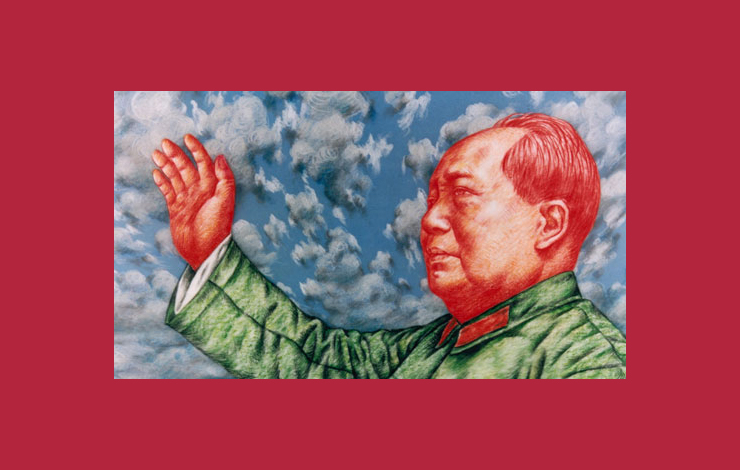
As director of the Human Rights Watch International Film Festival, Bruni Burres knows how the event can appear to those who've never attended. "Depressing and dogmatic," she says flatly. "I think that the title, Human Rights, can be really off-putting. People think that the films will be these preachy documentaries showing all the terrible things happening around the world. But people usually come out of the festival inspired, not depressed."
Now in its tenth year, the festival offered a grab bag of dramas and documentaries on such disparate subject matter as war widows and Serbian psychos. This year, Burres and her co-programmers received more than 500 submissions; of those, the team selected 23 full-length films and ten shorts, which screened Friday 11 through June 24 at Lincoln Center's Walter Reade Theater before moving on to Los Angeles.
"We look for works that educate, inspire and put a face on news headlines," says Burres, "and while we can disagree with the filmmaker's point of view, there can't be fundamental facts that are incorrect." The selection committee looks for works of fiction or fact that are grounded in historical truth and dramatize some aspect of human rights. The organizers also rely on feedback from a roster of experts to vouch for the accuracy of each submission's subject matter. Eager to prevent misconceptions that merit has been sacrificed for message, Burres adds, "I think that this is one of our strongest years artistically. Many of the films have won international awards."
A number of the movies are as notable for their artistry as for their activism. Particular standouts include the New York premieres of last year's Oscar-nominated documentaries Sunrise over Tiananmen Square and Regret to Inform. Sunrise, a 30-minute autobiographical short by former Chinese propaganda artist Shui-Bo Wang, traces the filmmaker's seduction by, and subsequent disappointment with, his country's Communist party. "My father and mother were close to me, but Chairman Mao was the closest," he says at one point in the film, which finds him "caught between Marx and Coca-Cola." Splicing his colorful artwork with personal black-and-white photographs, Wang narrates a magical mystery tour that is elegiac and enchanting.
Equally potent but decidedly more harrowing, Barbara Sonneborn's Regret to Inform chronicles her 1997 journey to Vietnam, where her first husband was killed in battle. Combining interviews of both American and Vietnamese war widows, the documentary is an unflinching yet thoroughly compassionate look at this rarely considered subject. "We never talked about what war means," Sonneborn says in the film of seeing her husband off to fight. "We talked about how afraid I was that he would get killed, but we never talked about the fact that he would have to kill people, maybe even a child."
School Prayer: A Community at War chronicles a different sort of battle. Directed by Slawomir Grunberg and Ben Crane, the film is a riveting account of Lisa Herdahl, the Wisconsin woman who moved to Potontoc County, Mississippi, and sued her local government with the help of the ACLU to stop school prayer during class time. Evenhanded and never sensational, the film holds a mirror to religious intolerance and presents a complex, poignant and truly terrifying reflection. Few viewers will fail to feel a chill when one stoic Mississippi resident proclaims, "The ACLU is to the Christian faith what the Nazi was to the Jew."
Although documentaries have dominated the festival since it began, an increasing number of well-made narrative features are now included. "We probably do see more documentaries than anything else," Burres says. "But as the years go by, the dramas are coming up to a higher level."
She cites the festival centerpiece, the Serbian drama Cabaret Balkan (formerly titled The Powder Keg), as a perfect example. Set on the eve of the 1995 Dayton Peace Accord, this cinematic bloodbath follows a night in the life of several Belgrade inhabitants as they steal, bicker and blow each other away. Distinguished by pitch-black humor and excruciating violence, the film is likely to raise hackles with its unsparing brutality and incomprehensible characters. "There's a certain Balkan film style," explains Burres. "A lot of my friends are from that part of the world, and they see Cabaret Balkan as representative of the Serbian mindset. Our festival films don't always break all barriers. Sometimes there can be universal elements or inspiration that come out of the film, but there are also cultural differences that cannot always be bridged. I feel that any film's biggest strength is the filmmaker's point of view. That can then be used as a starting point for discussion."
In fact, the cross-cultural dialogue the festival generates makes it a coveted showcase for filmmakers. Regret to Inform's Sonneborn—a long-time supporter of Human Rights Watch, which sponsors the film festival and has been monitoring human rights in as many as 70 countries for 20 years—submitted her film in order to reach people that other festivals don't. "I felt that this festival would draw on international films dealing with themes akin to what I am confronting," she said recently from her home in California. "I knew I would meet real interesting people from all over the world who are concerned about the issues that have been burning up my life. Issues like, How do we help people heal and bring reconciliation after centuries of war?"
Slawomir Grunburg, the co-director of School Prayer, also considers the festival a global event. "It's well known, and it travels," he says. "The festival generates very heated discussions. The audiences that come to it are critical and knowledgeable and like to discuss the films. They have very strong opinions." That may explain its continued success here. "New York is definitely a hard audience," Burres says. "The city has a lot of film festivals. But each year, our audience here just grows and grows."
This article was re-printed with kind permission from TIME OUT NEW YORK MAGAZINE.
